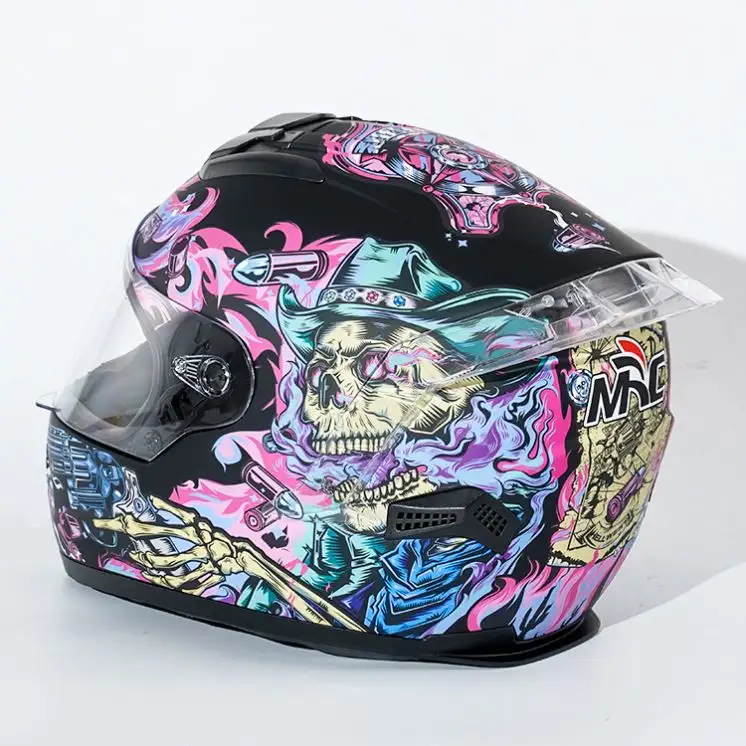Safeguarding the open road is a shared responsibility between motorcyclists and the equipment they use. Motorcycle helmets play a vital role in rider safety and are a critical component in reducing the risk of injuries and fatalities on the road. Here’s a closer look at the role of motorcycle helmets in safeguarding both riders and the open road:
- Head Protection: The most obvious function of a motorcycle helmet is to protect the rider’s head. In the event of an accident, the helmet acts as a protective barrier, absorbing and distributing the impact forces. This reduces the risk of head injuries, including concussions, skull fractures, and traumatic brain injuries.
- Reduction in Fatalities: Multiple studies and statistical data consistently show that helmet use significantly reduces the likelihood of fatalities in motorcycle accidents. Helmets are the single most effective safety measure that motorcyclists can employ to protect themselves.
- Prevention of Brain Injuries: Even if a head injury is not fatal, it can result in debilitating and lifelong consequences, including cognitive impairments, memory loss, and motor skill issues. Helmets are engineered to minimize the risk of brain injuries by absorbing and dissipating energy during a crash.
- Deterrent for Risky Riding Behavior: The knowledge that wearing a helmet is a legal requirement in many places can act as a deterrent for riders engaging in risky behavior. This includes riding at excessive speeds, performing stunts, or disregarding traffic laws.
- Protection from the Elements: Helmets provide protection from wind, rain, hail, flying debris, and harsh weather conditions. They help ensure that riders maintain clear vision and comfort throughout their journey, reducing distractions and the risk of accidents.
- Reduced Medical Costs: Accidents without helmet use can lead to extensive medical bills, surgeries, and ongoing rehabilitation. Helmets are a cost-effective means to minimize these expenses by reducing the severity and frequency of injuries.
- Legal Compliance: In many regions, wearing a motorcycle helmet is not just a matter of personal choice but a legal requirement. Failure to comply with helmet laws can lead to fines and legal consequences, further emphasizing the importance of helmet use.
- Cultural Promotion of Safety: By consistently wearing helmets, motorcyclists promote a culture of safety within the riding community. This not only encourages responsible behavior but also sets a positive example for new riders and others who may be on the fence about wearing helmets.
- Peace of Mind: Wearing a helmet provides riders with peace of mind. Knowing that they have taken steps to protect themselves and are prepared for unforeseen events can enhance their focus on enjoying the open road and the freedom of motorcycling.
In conclusion, motorcycle helmets are a fundamental and indispensable element of rider safety. They serve as the first line of defense against head injuries and significantly reduce the risk of fatalities and lifelong impairments. Motorcyclists, as well as policymakers and safety advocates, should continue to prioritize the use of helmets to safeguard the open road and promote responsible riding behavior. Remember that the best helmet is one that is properly fitted, meets safety standards, and is regularly maintained and replaced when necessary to ensure optimal protection.


